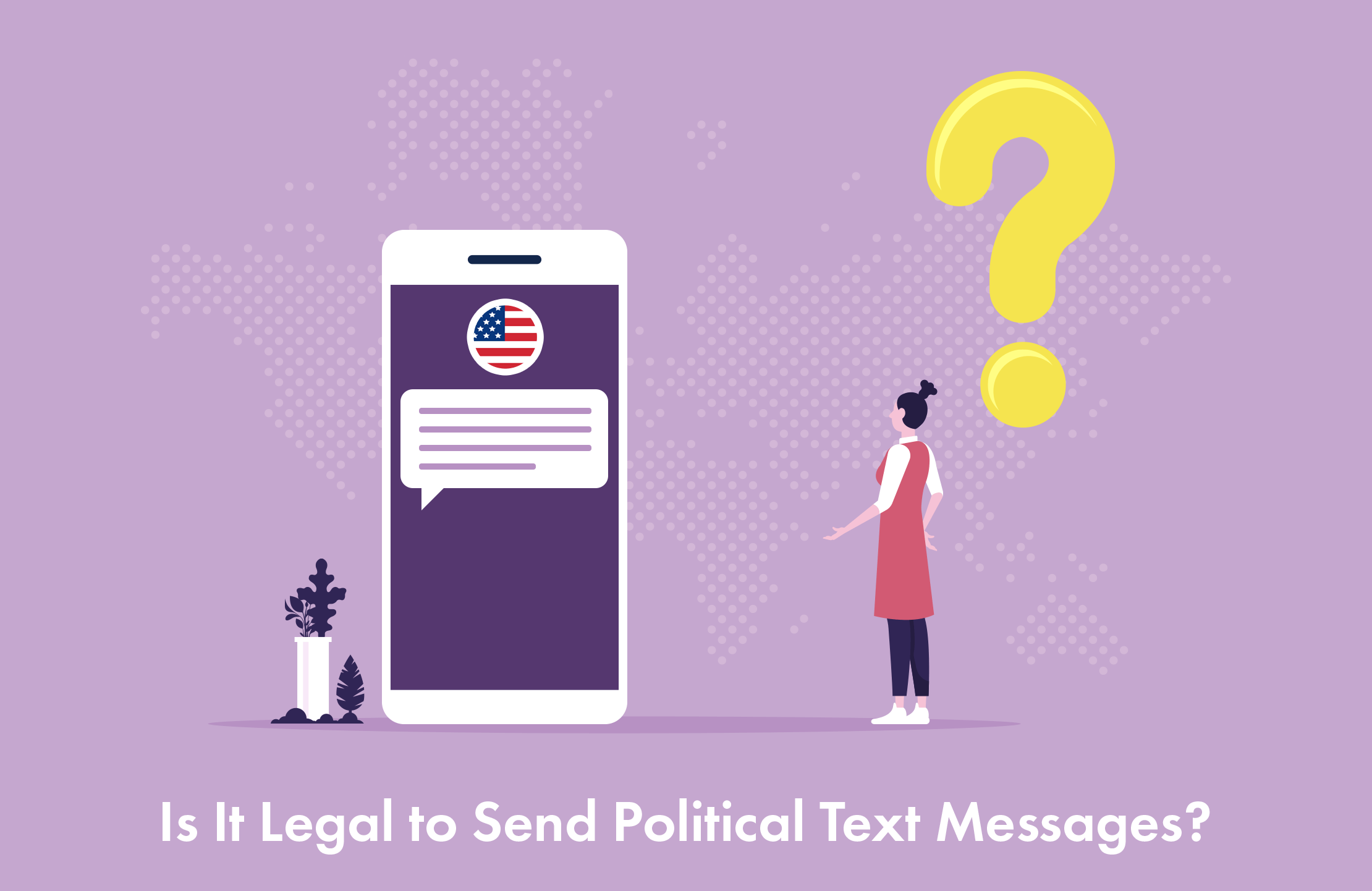
In the 2016 presidential campaign, a mere 19% of voters said text messaging was the best way to reach them. Four years later, in the 2020 campaign, that number climbed to an incredible 78%. In October 2020 alone, the last full month before Election Day, candidates up and down the ballot sent out 5 billion text messages.
In other words, political text messaging has become a force in elections.
However, with the growing popularity of political text messaging comes a greater risk of misuse. Campaigns that violate these laws risk fines of up to $1,500 per unsolicited text message. But there’s a right way to use SMS marketing to ensure your political campaign complies with industry rules and regulations.
This blog post walks you through the most important guidelines to help your political campaign operate within the law and not send unsolicited or illegal text messages.
Who Regulates Political Text Messaging?
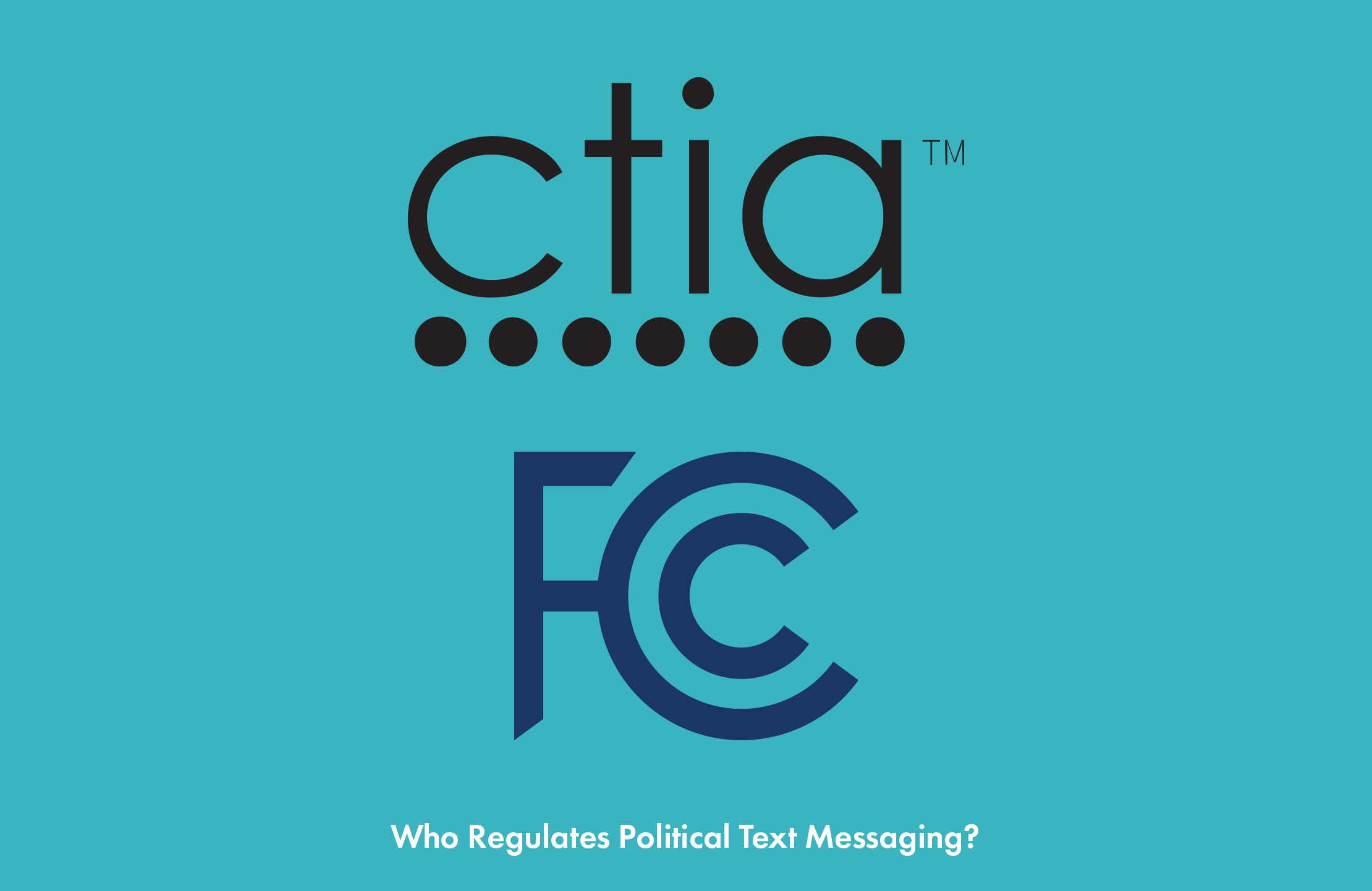
Two organizations regulate communications and set up laws and regulations to protect consumers from spam text messages and phone calls:
Let’s take a closer look at how these organizations regulate the text message marketing industry.
The FCC and the Telephone Consumer Protection Act
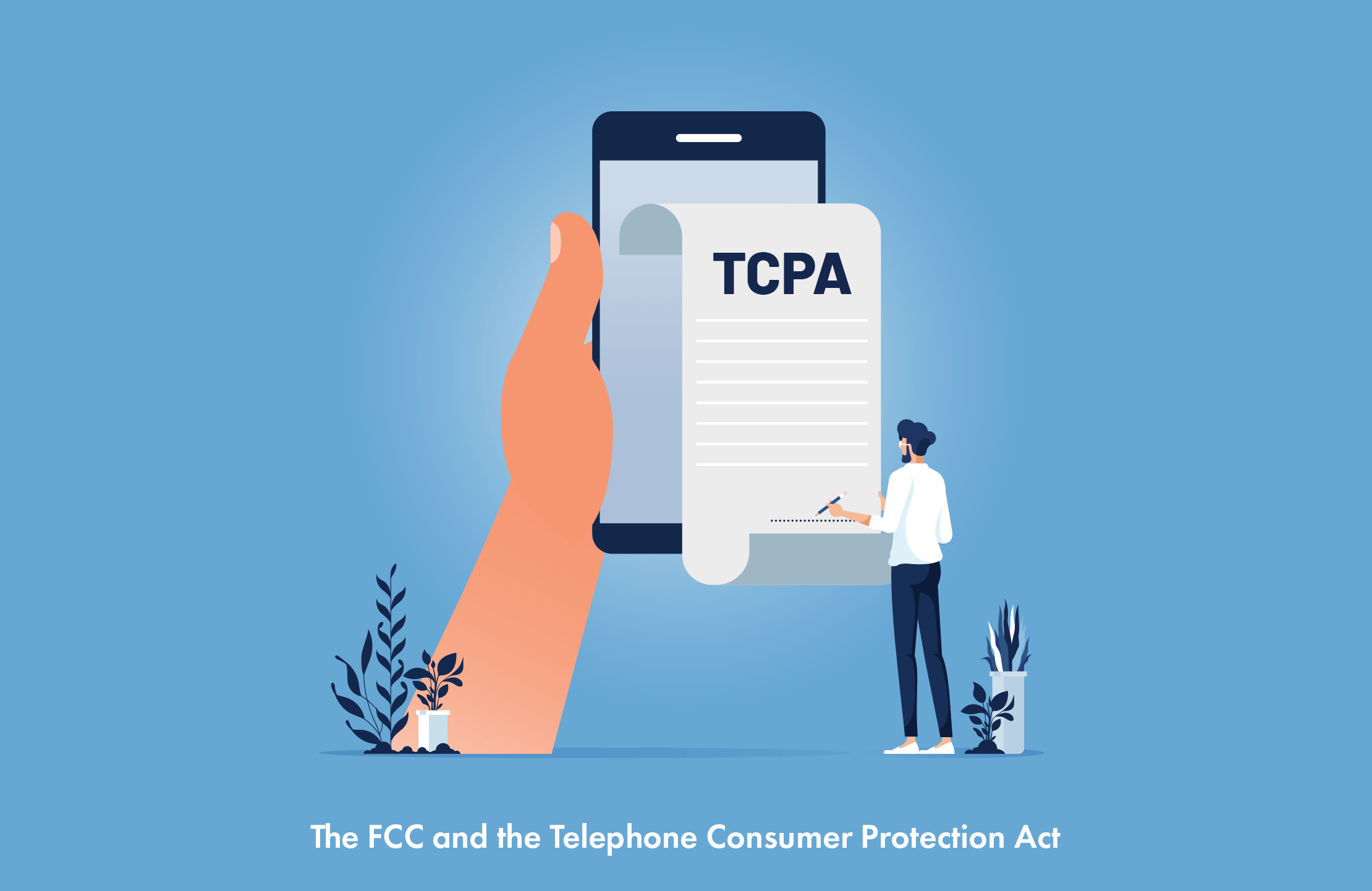
The FCC regulates and oversees communications throughout the United States, including enforcing the Telephone Consumer Protection Act (TCPA). The TCPA specifically protects consumers against unwanted phone calls through methods such as autodialed systems or prerecorded messages, among others.
The TCPA also protects against unwanted text messages. This form of communication didn’t exist in 1991 when the TCPA was enacted. With the emergence of text messaging, the FCC ruled that since text messages are delivered over a cellular network, they’re technically phone calls. Therefore, the TCPA now also protects consumers against unwanted text messages, spam text messages sent by scammers, and unsolicited election-related texting campaigns.
Election-related campaigns must do two things to comply with the TCPA. First, they must obtain written proof that each text message recipient has consented to receive text messages from them. Campaigns don’t have to do this the old-fashioned way, using pen and paper. They can obtain consent through a web form, at the point of sale, or on a mobile device.
Political campaigns or organizations must disclose the following statement: “By participating, you consent to receive text messages sent by an automatic telephone dialing system.”
The “automatic telephone dialing system” disclaimer must be visible to subscribers as they’re opting in to the SMS campaign. Failure to include this disclaimer will result in the election campaign sending spam text messages and being at risk for millions of dollars in fines and litigations.

If a political campaign can’t prove it has written consent for each phone number, it’s illegal for them to send any political text messages through an automated text messaging system. However, the campaign is still free to use person-to-person (P2P) texting by enlisting campaign volunteers to send individual text messages to one person at a time. The TCPA only applies to app-to-person (A2P) text messaging.
Second, TCPA also requires that any organization sending text messages must ensure recipients are aware that consent for receiving SMS messages is not a condition of purchase.
If an election campaign fails to abide by these two requirements, it will be liable for fines of $500 to $1,500 for each unwanted text message—per recipient.
Campaigns Should Use a Double Opt-In for Political Text Messaging
At Tatango, we recommend taking the extra step and having subscribers complete the double opt-in process. When a subscriber responds to a campaign through a short code and indicates they want to receive the campaign’s political text messages, the next text they receive is a message that welcomes them and asks them to respond YES. This response gives the campaign the added proof that the subscriber opted in. It also guards against people accidentally opting in or having their name entered as a prank or joke.
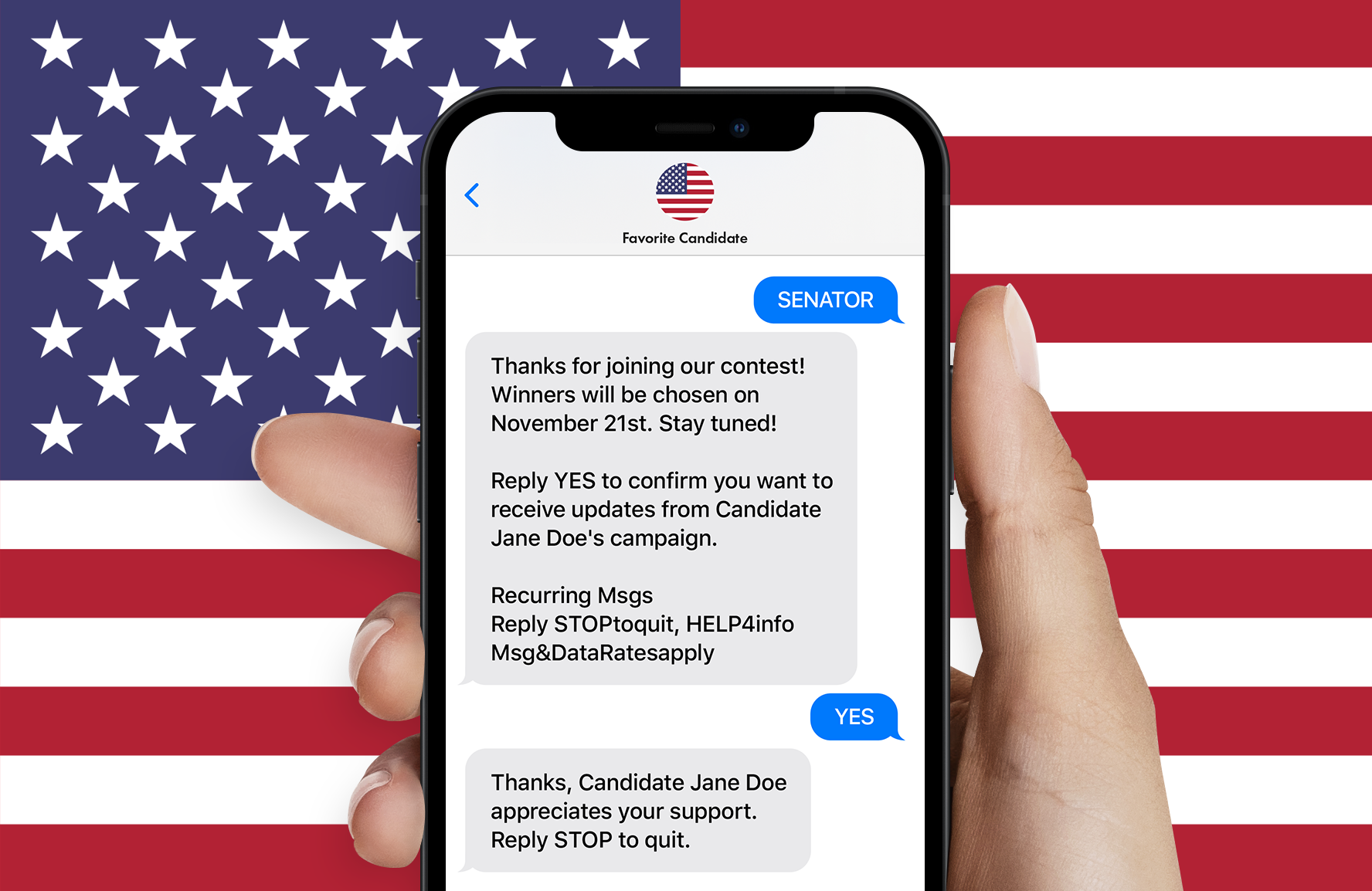
Cellular Telecommunications Industry Association

The CTIA, as it is officially known now, is a nonprofit group that represents wireless carriers (such as AT&T, T-Mobile, and Verizon) and manufacturers and providers of wireless products and services. The organization also oversees all aspects of short codes, those five- or six-digit codes used instead of ten-digit phone numbers for text message marketing.
The CTIA is not a federal agency. Violation of their recommendations won’t result in a fine, but failure to comply with the CTIA’s guidelines may lead to the suspension of your short code. Most political campaigns use short codes, and this loss could be devastating.
When a political campaign sends election-related text messages, CTIA best practices include suggested opt-in and opt-out texts.
A campaign must send the following information when someone opts in:
- Program name or description
- How to opt out, sent at least once a month (“txt STOP 2 end”)
- How to find more information (“text HELP for help”)
- Recurring-messages disclosure (“3 msgs/mo”)
- Disclosure stating “Message and data rates may apply.”
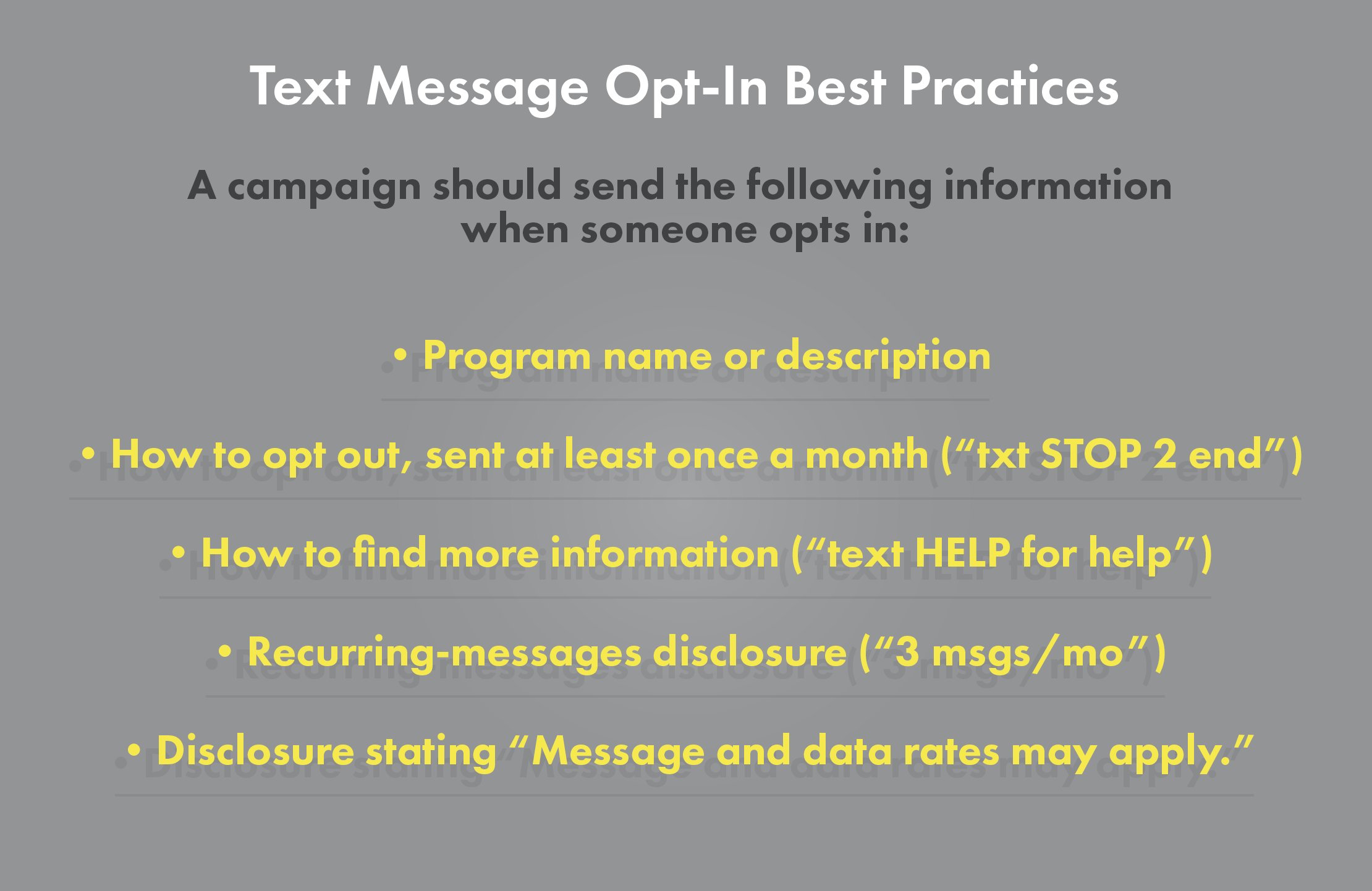
Subscribers should be able to text to opt out by texting any of the following to the campaign’s short code:
- Stop
- End
- Cancel
- Unsubscribe
- Quit
Compliance is key to a successful election text messaging campaign. Political organizations must make an active effort to comply with all best practices, guidelines, and laws to avoid legal action.
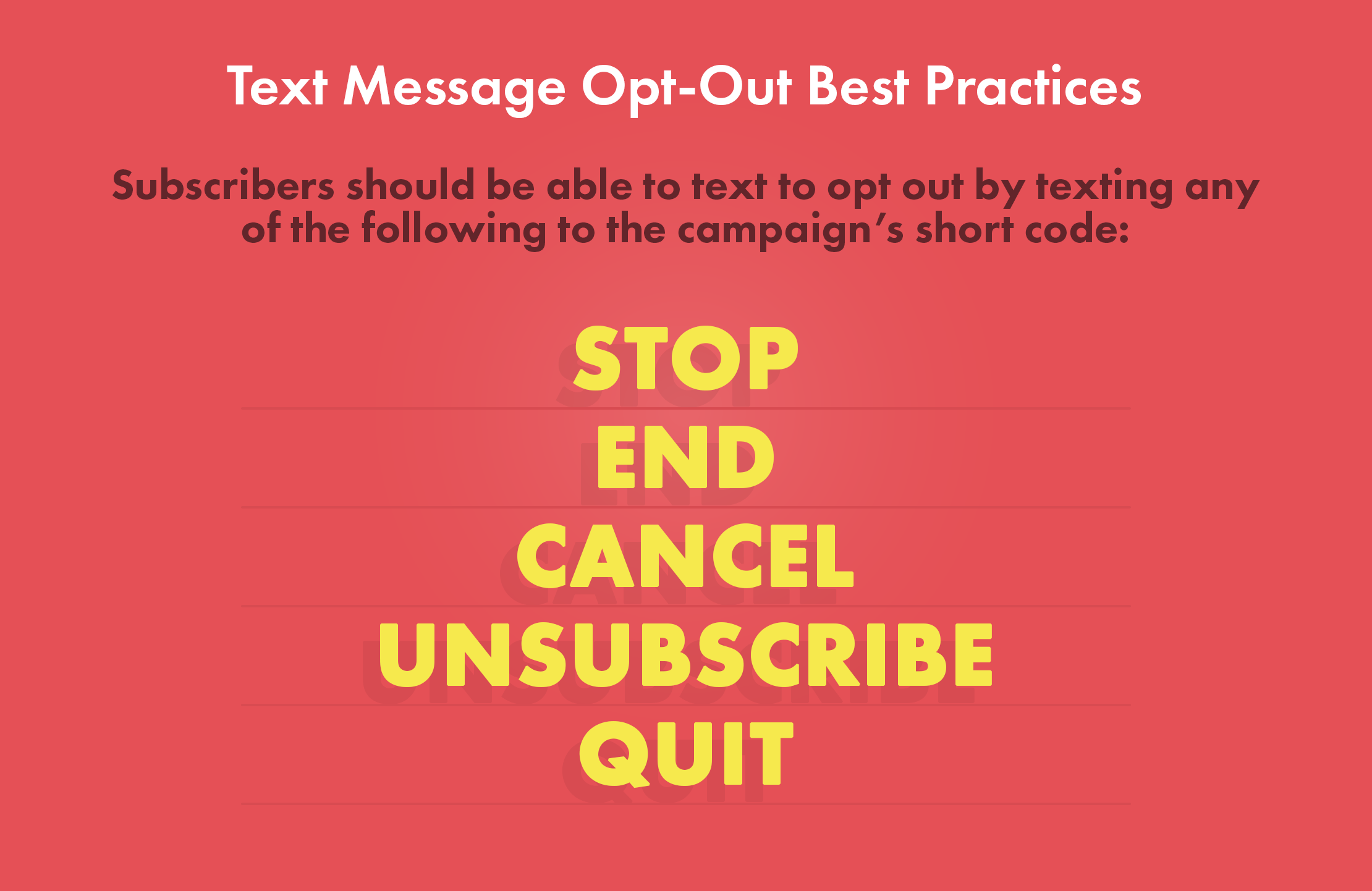
Verify Your Campaign’s Identity with Campaign Verify
In the final months of the 2020 election, a new entity called Campaign Verify appeared in the arena of political text messaging. Campaign Verify is a nonpartisan service that verifies the identity of U.S. political campaigns, parties, and PACs. It’s a nonprofit organization whose mission is “to preserve trust in our elections.”
While Campaign Verify doesn’t enforce laws concerning campaigns and their text messaging strategies, not working with this service will limit your ability to send political text messages.
When a political campaign registers, Campaign Verify certifies that it’s representing the campaign in question. Wireless carriers can then verify the campaign’s legitimacy when it sends political text messages. As of this writing, wireless carriers representing two-thirds of cellular owners have signed on to Campaign Verify. Others are expected to follow.
Stay Current on Political Text Messaging Rules
Text messaging represents new technology, and in many instances, state and federal lawmakers are catching up and enacting new rules and laws. Likewise, the FCC often makes a ruling about how this legislation is interpreted with the TCPA in mind. Court decisions can also affect how this technology is used. Campaigns are advised to seek ongoing legal updates on regulations and decisions affecting political text messaging.
Choosing the Best SMS Platform for Political Campaigns
Winning political candidates and campaigns know that political text messaging is a vital marketing strategy. Many campaigns see open rates as high as 99% (compared to 20% for email marketing). Campaigns that work with Tatango use SMS marketing to reach their fundraising needs and increase voter turnout, and they routinely receive $5 in donations for every $1 invested in text marketing.
Choosing the right SMS marketing software is key to sending text messages that resonate with potential voters, donors, and supporters. At Tatango, we make it our business to know everything about political text messaging, especially the regulatory requirements needed to run a trouble-free campaign. Download our TCPA Survival Guide today to learn more.

